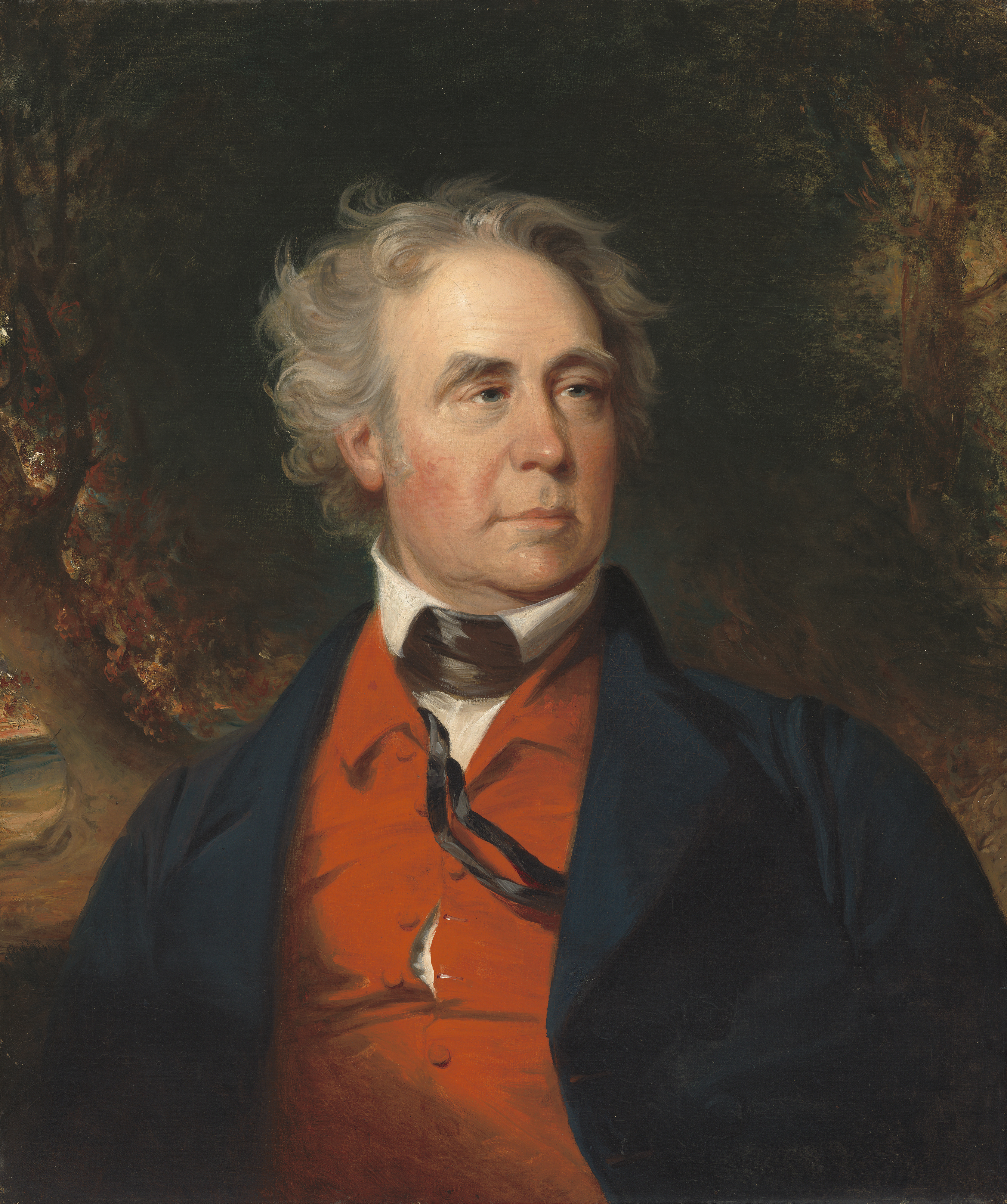Richard Mentor Johnson
 Richard Mentor Johnson (October 17, 1780 – November 19, 1850) was an American lawyer, military officer and politician who served as the ninth vice president of the United States from 1837 to 1841 under President Martin Van Buren. He is the only vice president elected by the United States Senate under the provisions of the Twelfth Amendment. Johnson also represented Kentucky in the U.S. House of Representatives and Senate. He began and ended his political career in the Kentucky House of Representatives.
Richard Mentor Johnson (October 17, 1780 – November 19, 1850) was an American lawyer, military officer and politician who served as the ninth vice president of the United States from 1837 to 1841 under President Martin Van Buren. He is the only vice president elected by the United States Senate under the provisions of the Twelfth Amendment. Johnson also represented Kentucky in the U.S. House of Representatives and Senate. He began and ended his political career in the Kentucky House of Representatives.After two years in the Kentucky House, Johnson was elected to the U.S. House in 1806. He became allied with fellow Kentuckian Henry Clay as a member of the War Hawks faction that favored war with Britain in 1812. At the outset of the War of 1812, Johnson was commissioned a colonel in the Kentucky Militia and commanded a regiment of mounted volunteers from 1812 to 1813. He and his brother James served under William Henry Harrison in Upper Canada. Johnson led troops in the Battle of the Thames. Many reported that he personally killed the Shawnee chief Tecumseh, a claim that he later used to his political advantage.
After the war, Johnson returned to the House of Representatives. The state legislature appointed him to the Senate in 1819 to fill the seat vacated by John J. Crittenden. With his increasing prominence, Johnson was criticized for his interracial relationship with Julia Chinn, a mixed-race slave who was classified as octoroon (or seven-eighths white). Unlike other upper-class planters and leaders who had African-American mistresses or concubines, but never acknowledged them, Johnson treated Chinn as his common law wife. He acknowledged their two daughters as his children, giving them his surname, much to the consternation of some of his constituents. It is believed that because of this, the state legislature picked another candidate for the Senate in 1828, forcing Johnson to leave in 1829, but his Congressional district voted for him and returned him to the House the same year.
In 1836, Johnson was the Democratic nominee for vice-president on a ticket with Martin Van Buren. Campaigning with the slogan "Rumpsey Dumpsey, Rumpsey Dumpsey, Colonel Johnson killed Tecumseh", Johnson fell one short of the electoral votes needed to secure his election. Virginia's delegation to the Electoral College refused to endorse Johnson, voting instead for William Smith of South Carolina. The Senate elected him to the vice-presidential office. Johnson proved such a burden for the Democrats in the 1836 election that they refused to renominate him for vice president in 1840. Van Buren campaigned for reelection without a running mate. He lost to William Henry Harrison, a Whig. Johnson then served two more years in the Kentucky House of Representatives. He tried to return to higher office but was defeated. He finally was elected to the Kentucky House in 1850, but died on November 19, 1850, just two weeks into his term. Provided by Wikipedia